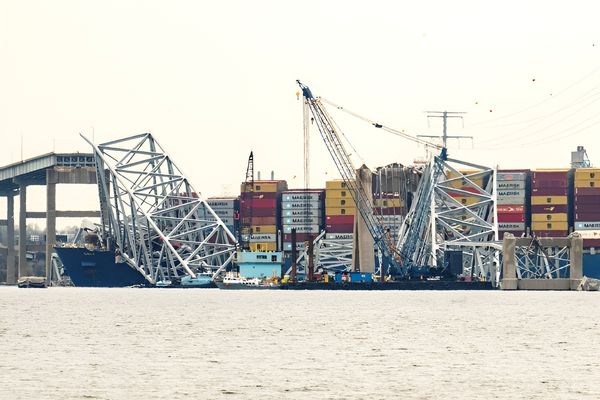
Maybe revenge isn't so sweet anymore.
Not so long ago the term "revenge travel" was making the rounds.
The idea was that people were so fed up with the covid-19 pandemic lockdown that they packed their bags and took off for just about anywhere once travel restrictions started to ease.
Related: Delta adds a route U.S. tourists have been begging for
Last year, travel insurance company Allianz Partners projected that travel to Europe would soar 600% over 2021.
“The pandemic made people realize you can't take travel for granted and many Americans are eager to visit Europe this summer,” Daniel Durazo, director of external communications at Allianz Partners USA, said in an April 2022 statement.
'Last stage of pent-up demand'
The Summer of '23 was also pretty strong, according to a survey by the Federal Reserve Bank of New York, which found that almost a third, or 32.8%, of all U.S. households took a vacation between May and August, up from 28.5% in August 2022 and a record high in data going back to 2015.
However, it looks like the revenge travel upswing is coming to an end.
The Federal Reserve's Beige Book said in September that consumer spending on tourism was stronger than expected, "surging during what most contacts considered the last stage of pent-up demand for leisure travel from the pandemic era."
Elie Maalouf also thinks that the revenge travel dish has gone cold. The CEO of Intercontinental Hotels Group (IHG) -) said in an interview with CNBC that he believes pent-up demand is over.
"People started traveling really by the end of 2020 as restrictions started to lift,” he said. “So we’re really past revenge travel — even in China.”
Intercontinental Hotel Group operates hotels under several brand names, including Regent, Crowne Plaza, Holiday Inn Club Vacations, and Candlewood Suites.
The company’s latest quarterly update showed travel demand remained strong during the close of the summer travel season.
“We think we’re in a sustainable place,” Maalouf said. “Our bookings for groups and meetings going into 2024 and beyond are the strongest we’ve seen in a very long time.”
Average room rates increase
IHG’s third quarter trading update showed the company’s revenue per available room — or “revpar” — was up 10.5% compared to third quarter 2022, and nearly 13% higher compared with the third quarter of 2019, which was before the pandemic.
This is despite a 3% drop in revpar, compared to 2019, in large cities in Greater China, which are more dependent on international travelers.
Maalouf said that lack of “airlift,” or flight capacity, into China is below 50% of prepandemic levels, which is affecting travel recovery in cities like Beijing, Shanghai, Guangzhou and Shenzhen.
“But if you look at the country as a whole, travel — which is mostly domestic in China — it’s recovered well above 2019,” he said, adding that more than 80% of IHG’s business in China is in mid-sized to smaller cities.
Occupancy levels in the third quarter at IHG hotels was 72% — just 1% shy of pre-pandemic levels, according to the quarterly update. But average room rates have jumped well above 2019 levels — up nearly 6% in Greater China, 15% in the Americas, and 24% in Europe, Middle East, and Africa (EMEA) and Asia.
But rising rates are barely keeping up with inflation, said Maalouf.
“Room rates have not really exceeded inflation in any of our markets,” he said. “I think people’s willingness to travel is exhibited by the fact they’re willing to pay.”
Get investment guidance from trusted portfolio managers without the management fees. Sign up for Action Alerts PLUS now.







